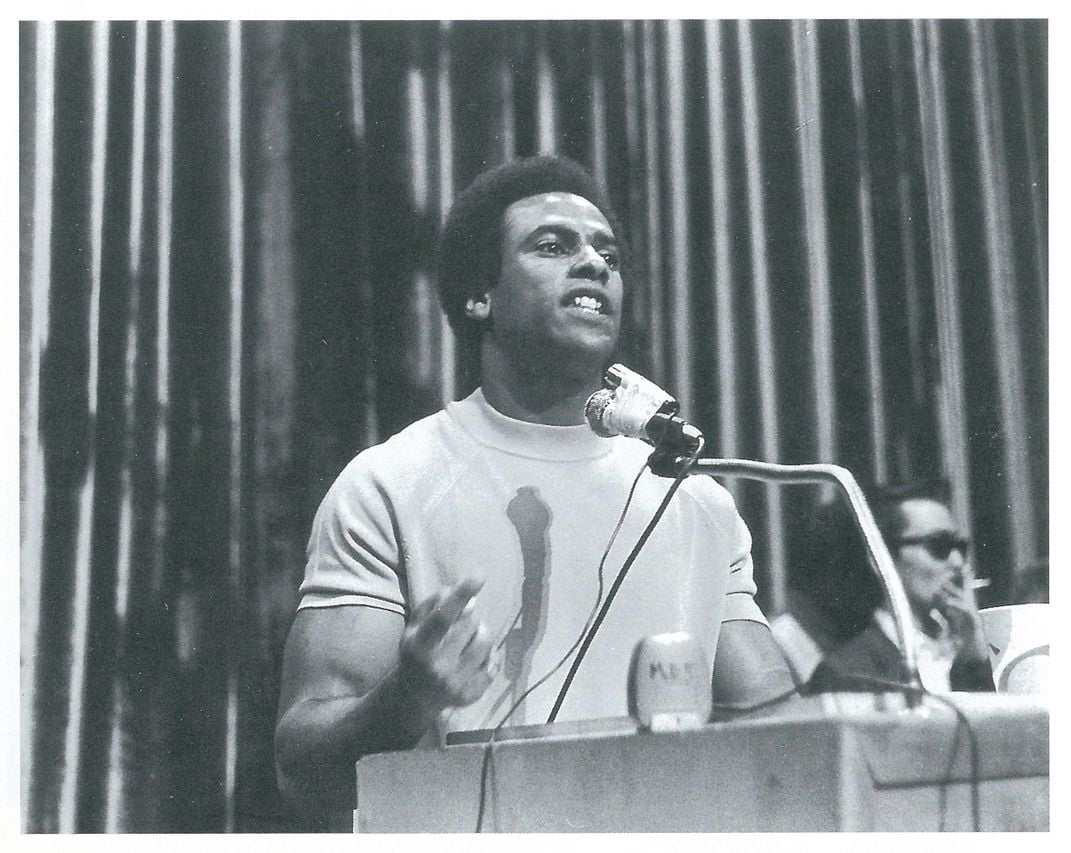Mini Museum Honoring the Black Panther Party Will Debut on Juneteenth
A pop-up exhibition dedicated to the Black power organization is set to open in Oakland, California, on June 19
/https://tf-cmsv2-smithsonianmag-media.s3.amazonaws.com/filer/55/6b/556b46b9-4dde-4b0c-8963-7a416d4ab887/minimuseum.png)
A 1,000-square-foot apartment in West Oakland, California, is now a “mini museum” documenting the history of the Black Panther Party, a militant Black power organization whose members “confronted politicians, challenged the police and protected [B]lack citizens from brutality,” per the Smithsonian’s National Museum of African American History and Culture. The pint-sized cultural institution is set to open on Juneteenth, a June 19 holiday that commemorates the end of slavery in the United States.
As the Associated Press (AP) reports, the property stands at the street corner where party co-founder Huey P. Newton was fatally shot in 1989. After tenants moved out of the first-floor apartment, the building’s owner, Jilchristina Vest, decided to revamp it as a space for the local community, writes Jessica Flores for the San Francisco Chronicle.
“It felt like it needed to be something more than somebody’s apartment,” Vest tells the Chronicle. “It needed to be something that was more along the lines of the Black Panther Party.”
Vest had previously spearheaded the creation of a mural dedicated to the women of the party on the building’s exterior. Now, a small-scale educational experience is set to join this public artwork.
The museum will open with a pop-up exhibition curated by Oakland-based archivist and collector Lisbet Tellefsen. It features seven-foot-tall banners, posters and photographs. Parts of the collection focus on the party’s groundbreaking free breakfast programs and free medical clinics.
“I hope people get a fuller picture of the Panthers and what they represented and what they were able to accomplish,” Tellefsen tells the Chronicle.
Speaking with Jaimee A. Swift of Black Women Radicals, Vest says she is particularly interested in sharing the history of women in the party, who were the main drivers of programs across the country that provided for people’s basic needs.
“They saw a child with no shoes? They decided to do a free shoe program,” she explains. “They saw a child with no coat? They created a free coat program.”
Vest says she bought the West Oakland building in 2000 after becoming fascinated with the history of the neighborhood. After moving in, she learned even more about the location’s ties to Panthers. In addition to standing across the street from the site of Newton’s murder, the house is near the party’s former headquarters at 1048 Peralta Street.
“It doesn’t happen anymore but there used to be a group of young Black Panthers who would march to [where] Huey was murdered and march in honor of him,” Vest tells Black Women Radicals.
KQED’s Lakshmi Sarah and Beth LaBerge report that Vest and Tellefsen are part of widespread efforts to preserve the legacy of the Black Panther Party in Oakland. Based in the California city, the Dr. Huey P. Newton Foundation is digitizing archives and creating public art to share the organization’s history.

Newton’s widow, Fredrika, says this work helps counteract false narratives perpetuated by government agencies that targeted the party. (Between 1956 and 1971, the FBI’s COINTELPRO initiative—short for counterintelligence program—investigated, infiltrated and discredited dissident groups including the Panthers; details of the covert program only came to light after activists stole confidential files from an FBI office in Pennsylvania and released them to the public.)
“It’s exactly what we did in the Black Panther Party: using art as education,” she tells KQED.
Former Black Panther member Billy X Jennings, meanwhile, began the It’s About Time archive, which has a physical space in Sacramento, after Stanford University acquired Newton’s papers in the late 1990s. The archive preserves radical underground newspapers from the 1960s and ’70s.
“I made a promise at the time that we were going to start our own archives, and we did,” Jennings tells KQED. “It’s very important to have the correct information to educate people about the legacy of the party.”
As Vest says to the Chronicle, she hopes to eventually transform the building into a community center that hosts activities such as yoga and dance classes for children.
For now, the museum will admit a maximum of five people at a time for 30-minute windows. Tickets are available online.
/https://tf-cmsv2-smithsonianmag-media.s3.amazonaws.com/accounts/headshot/Livia_lg_thumbnail.png)
/https://tf-cmsv2-smithsonianmag-media.s3.amazonaws.com/accounts/headshot/Livia_lg_thumbnail.png)